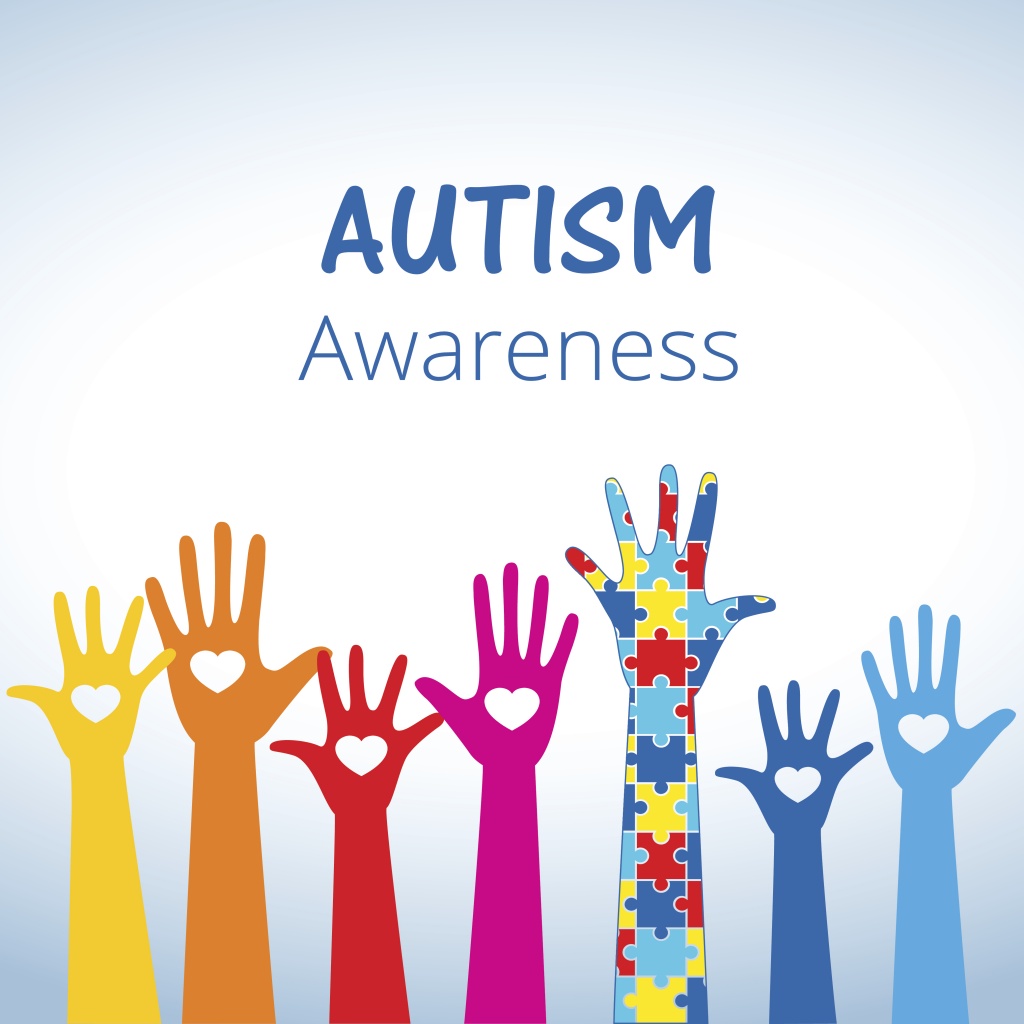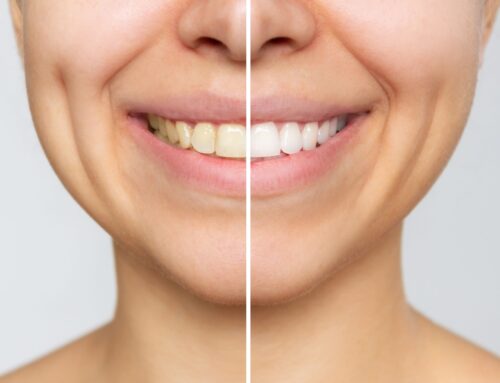Benefits of Special Needs Dentistry Services
World Autism Awareness Day is held on April 2, 2025, with the rest of the month dedicated to raising awareness and providing additional focus to autism. Each year autism organizations around the world celebrate the day with unique fundraising and awareness-raising events. This year during Autism Awareness Month, Snodgrassking Dental wants to amplify our support of autism awareness by providing patients with special needs dentistry services.
Snodgrass-King decided years ago that their dental services would fully support children with autism. Snodgrass-King advocates for special needs dentistry with their pediatric dental services. With special needs dentistry, children with autism can receive customized dental care. This specialized care helps patients and their caregivers have a pleasant and fully supportive dental experience.
Because children with autism fall under special needs health care, children and young adults with autism need a specific type of dental care when they visit their local dentist. The whole process of getting a dental exam and treatment can be frightening and uncomfortable for children with special needs because they have a different perspective of their surroundings.
With this in mind, we want to provide parents and families with what special needs dentistry looks like, options for patients with special needs during dental visits, and the benefits that come with seeing a special needs informed dentist.
Special Needs Dentistry
Many adults and children fear going to the dentist, but it can be especially frightening for children – and that much more scary for children with special needs. Whether it is a physical, medical, developmental, or cognitive condition, your child just may need more time in the dentist chair or specific accommodations. Every child is different and deserves individualized attention to meet their different needs. At Snodgrass-King Dental, our goal is to make sure you and your child with autism is comfortable from the beginning to the end of their dental visit.
Snodgrass-King is an dentaal team that took it upon themselves to direct their dentistry toward people with conditions like Down’s Syndrome, cerebral palsy, Alzheimer’s and the like. Special needs dentistry specialists at Snodgrass-King are more than just experts in the field of dentistry. They are experts in the field of compassion.
Let’s take a closer look at the benefits of special needs services within dentistry.
What Is Special Needs Dentistry?
Special needs dentistry is essentially dental care focused on providing quality service, care, and accommodations to individuals with special circumstances or disabilities.. In order for the patient to receive oral hygiene maintenance, cleanings, and other dental service procedures, the experience that comes with training in special needs dentistry can be incredibly beneficial. Dental offices that incorporate special needs programs often rearrange their services, provide additional staff, have special equipment, and create an environment that can fully accommodate the needs of individuals who are disabled.
Whether the disability is physical, developmental, behavioral, or emotional, dentists who acquire special needs dentistry as a full-time service are far and few, making their services high in demand.
Adults and children who are provided with special needs dental care can fall under any of the spectrum of disability, including:
- Autism
- ADHD
- Down syndrome
- Cerebral palsy
- Seizures
- MS
- Spinal cord injury
- Parkinson’s
- Muscular dystrophy
- Visual and hearing disabilities
- Depression
Other patients who may benefit include children with dental phobias
Patients who may also require special accommodations during their dental visit also include patients who are:
- Blind
- Deaf
- In a wheelchair or mobility restricted
- Children or adults with dental phobias
Patients like these may require delicate care or accommodations that can differ from a typical patient. Additionally, visiting a dental office can be overwhelming and daunting for patients like these. Special needs dentistry acknowledges that people who are differently abled may face unique challenges in accessing traditional dental care due to their conditions because of the overstimulation and uncertainties.
It can be challenging to provide patients who have special needs with proper oral treatment due to challenges that can arise during their visits from increased anxiety and sensory overload. This is why dentists aim to provide top quality care, comfort, and compassion to the overall well-being, both mentally and physically to their patients with special needs.
Common Oral Conditions Found & Treated in Special Needs Patients
Malocclusion
Found often hereditarily in patients or those with developmental disabilities, malocclusion is the misalignment or crowding of teeth. This happens when the upper and lower jaw are offset or askew (e.g. overbite, underbite, crossbite). Patients with a cleft lip or palate may also be prone to malocclusion. It is best to correct a malocclusion early on. Braces or other orthodontic appliances, teeth extractions, or surgery depending on the severity can treat a malocclusion.
Tooth Eruption
Patients with growth instability or disorders frequently have hurried or delayed tooth eruptions. Particularly children with Down syndrome may have up to 2-year delays in tooth eruptions. Genetics and other factors like jaw growth help to determine when teeth will erupt.
Dental Caries
Also referred to as tooth decay, dental caries are linked to a handful of things. For example, overproduction of saliva, prolonged breastfeeding, eating foods heavy in sugar, poor oral hygiene, and more. Teaching your child proper oral hygiene or helping those with certain disabilities to floss and brush correctly is extremely important to one’s overall health. Something as simple as changing your child’s diet or prescribing sugarless medicine could prevent future dental caries.
Dysphagia
Dysphagia is a swallowing disorder. It is described as difficulty passing food or drink from the mouth to the stomach. Oftentimes, this disorder is the result of muscle and/or nerve issues. Numerous neurological disorders or patients who have experienced a stroke or brain injury may also encounter dysphagia as a symptom. It is important to eat properly and get the appropriate amount of calories. As a result, severe cases of dysphagia may keep a person from eating enough. Treatment may include swallowing exercises, a revised diet, surgery, or medication.
Bruxism
Bruxism, also known as teeth grinding, is found in all walks of life. In addition, some people also experience clenching of the jaw. It is common to find bruxism in patients with cerebral palsy or acute cognitive disabilities. Many children grow out of it, while others use night guards or behavioral techniques to keep the teeth from further damage.
Early Periodontal Disease
Weakened immune systems and connective tissue disorders may welcome periodontal disease, or gum disease, early on in a child’s life. Improper oral hygiene will only make this worse if it hasn’t already caused severe gum disease. For infection, a trip to the dentist, and antibiotics may be in order. If not quickly treated, tooth loss is a risk.
Gingival Overgrowth
Most commonly, there are a handful of medications that have the side effect of gingival overgrowth. Gingival overgrowth is the enlargement or increase in the size of the gums. The overgrowth can range from mild to severe. If applicable to your child, will get checked within the first six months of starting certain medications, such as immunosuppressant. To treat gingival growth both medical (alternative medicines) and dental (rinses and regular appointments) attention.
What To Look For In a Special Needs Dental Practice
When you begin your search for a dental provider who is special needs informed, and can offer the appropriate accommodations for your child or family member, there are a few key factors to look for. Most dental offices strive for adaptive care techniques which are approaches and methods tailored to each patient’s specific requirements to ensure a comfortable, safe, and successful dental visit.
Here’s a deeper look into various adaptive care strategies:
Communication Adaptations
- Non-verbal Communication: For patients who have difficulty with verbal communication, dentists might use visual aids, sign language, or picture boards to explain procedures and understand patient needs. Communication of this kind can help patients have a better visual idea of what is occurring while they’re at their visit, and what is to come.
- Simplified Language: Using clear, simple language or breaking down instructions into easy-to-understand steps can be beneficial for patients with cognitive impairments. Simple words and phrases can help differently able patients feel less overwhelmed, giving their brain more time to process each step of their visit at their own speed.
- “First, Then” Language: This type of communication method is a more specific approach to the simplified language strategy. Using “first, then” language is a technique to break down the dental visit process step-by-step, without going a step or two ahead of the process. This can look like sharing with the patient, “First, we will have a seat in the dentist’s chair, then the dentist will ask you to open your mouth wide to see each tooth.” The idea behind “first, then” language is to keep the patient engaged, moment by moment, with what is happening around them during their dental visit.
Environmental Modifications
- Reduced Sensory Stimulation: For patients sensitive to noise, light, or touch, clinics might offer quieter tools, dimmed lights, or headphones to listen to music during procedures to create a more relaxing environment.
- Physical Accommodations: Adjusting dental chairs, using supports or cushions, and ensuring wheelchair accessibility are ways to accommodate physical disabilities.
Behavioral Techniques
- Desensitization: Gradually exposing a patient to dental procedures over several visits can help reduce fear and anxiety. This might start with simply sitting in the dental chair and progress to more involved procedures.
- Positive Reinforcement: Offering praise or rewards after successful steps or cooperation during dental visits can encourage positive behavior and reduce anxiety.
Use of Sedation and Anesthesia
- Mild Sedation: For patients who are anxious or have mild sensory sensitivities, mild sedation can help relax them without inducing sleep. The main benefit of providing sedation medication during a dental procedure is to alleviate the overall fear or stress the patient will have, either before or during the dental exam, so that their experience is pleasant and free of worry.
- General Anesthesia: In cases where patients cannot tolerate dental work due to severe disabilities or extreme anxiety, procedures may be performed under general anesthesia to ensure their comfort and safety.
Specialized Dental Tools and Techniques
- Modified Dental Instruments: Using softer or smaller instruments to accommodate patients’ needs or comfort levels can make a big difference.
- Protective Stabilization: With patient consent, protective stabilization devices may be used to safely support patients who have difficulty staying still during treatment.
Patient and Caregiver Education
- Customized Oral Hygiene Instructions: Providing training and resources to caregivers and patients on how to maintain oral hygiene at home, considering the patient’s specific abilities and limitations.
- Routine and Familiarity: Establishing a routine for dental visits and maintaining the same dental team for appointments can help patients feel more secure and familiar with the process.
Interdisciplinary Collaboration
Collaborating with Other Healthcare Providers: Dentists may work with the patient’s medical doctors, therapists, or specialists to ensure a holistic approach to the patient’s health and to understand any contraindications or special considerations for dental treatment.
By employing these adaptive care techniques, dental professionals can significantly improve the dental care experience for patients with special needs, ensuring they receive the necessary treatments in a manner that respects their individual circumstances and promotes their oral health.
Sedation Dentistry at Snodgrass-King
Sedation dentistry is beneficial to the patient as it helps to calm and relax patients who may otherwise become frightened from the noise of dental drills, appearance of medical equipment, and having a dental hygienist work away in their mouths with dental tools. The most common form of sedation used by dentists is referred to as minimal sedation and is administered by having the patient inhale a combination of nitrous oxide and oxygen (aka, “laughing gas”) through a mask. Being put under sedation during a dental procedure is a common practice for dentists performing cleanings when an adult or child has special needs.
Sedation can be used during any procedure that involves piercing or cutting of the gums such as:
- Complex wisdom tooth extractions
- Dental implant installations
- Deep cleanings
- Root canal therapy
Dentists performing restorative procedures or surgery may opt-in for a more aggressive form of sedation which can be either moderate or aggressive sedation. The moderate form of sedation is usually necessary when patients are given medication in pill form called Halcium, which is taken orally an hour prior to the dental exam and causes the patient to sleep peacefully throughout the entire procedure. The aggressive type of sedation is given by syringe and causes the patient to sleep the entire duration of the dental exam and treatment.
What Makes a Great Pediatric and Special Needs Dentist?
Did you know that pediatric dentists actually have two more years of complex education and training than a general dentist? That’s dedication! During these extra years of training, certain subjects such as behavior management and sedation dentistry are studied and practiced.
Management capabilities is one way we can help better care for your child’s needs while visiting our office.
Why Choose a Special Needs Dentist?
The goal of special needs dentistry is to ensure that all individuals, regardless of their differences, have access to the dental care they need in a manner that respects their dignity and individual circumstances. This approach helps prevent oral diseases, maintain overall oral health, and improve the quality of life for people with special needs.
Why Specialized Dental Care for Autism?
Because children with autism fall under special needs health care, children and young adults with autism need a specific type of dental care when they visit their local dentist. The whole process of getting a dental exam and treatment can be frightening and uncomfortable for children with special needs because they have a different perspective of their surroundings.
Snodgrass-King provides a slew of special needs dental treatments such as:
- Special needs dentistry
- Pediatric dentistry
- Sedation dentistry
- Dental surgery
- Dental cleanings
Special needs dentistry is any form of dentistry that pertains to a person who has a disability that impairs his or her physical, mental, or developmental processes so much that they need additional oral health services to receive proper dental care. Pediatric dentistry offices that also provide special needs services for children have additional dental staff members to provide counseling and assistance during all phases of dental treatments. The treatment areas are developed in a pleasing and inviting fashion. Additionally, experts speak candidly and provide support for the caregiver who brings the child in for their dental procedure.
What Sets Snodgrass-King Dental Apart
*Mom and dad, you may go into the dentist’s room with your child for added support during hygiene visits, just not for restorative appointments. Your child may also hold a stuffed animal or a toy that makes them feel more comfortable. In addition to choosing a new toothbrush and toothpaste, your child also has the opportunity to pick something from the treasure chest.
Qualities of the Trained Dental Specialists at Snodgrass-King
Dentists who specialize in children’s dentistry are certified by the American Academy of Pediatric Dentistry (AAPD) to also provide special needs dentistry. They offer a number of dental procedures to patients including teeth examinations, cleanings, fillings, and extractions. They also advise the children on how to do proper oral care.
Patience and Accuracy
A special needs dentist usually tailors his procedures based on the unique needs of a patient. For pediatric dentistry, the appointment may take longer and are usually slower. The reason for this is the clinic may need a detailed medical history of the patient. For instance, they need to know if the patient is allergic to certain medications. They also need to know if the patient is seeing a medical practitioner regularly. The clinic will also take note of the medications the patients take on a daily basis. This is to ensure that the medications will not counteract with their treatments.
Attentiveness
Dentists trained in special needs patients can easily discern what their patients personally require. Children, for instance, could get nervous during the appointment. They may cry or throw a tantrum because of the fear of the unknown. This is why you need to go to a dentist who has knowledge and experience in children’s dentistry.
Additionally, before you or your child’s first appointment, we recommend you meet with your dentist and establish expectations for the treatment.
Dentists trained in pediatric dentistry know how to put the child at ease during the procedures so the treatment will go smoothly. They can establish a relaxing environment so the patient will feel secure. The dentist may use a mild sedative to help the child relax.
Dentists who work with special needs patients also provide the necessary equipment specifically designed for the patients such as an operating theater. Knowledge and expertise are important when dealing with people with special needs. It can be challenging to deal with this demographic.
Compassion
Above all, dentists who specialize in special needs dentistry also need to be compassionate and tolerant to their patients’ plight. This particular segment of patients requires additional care than the usual. If the practitioner is not understanding and tolerant, he may have a hard time dealing with children’s unexpected reaction. The patient has to be comfortable with the dentist. The relationship should not be strained. Establishing trust between the dentist and the patient is crucial to the success of the dental procedures. This is why choosing the right special needs dentist to work with is necessary
Third-Party Financing Options
In addition, Snodgrass-King takes its services a step beyond other providers. They also offer benefits such as third-party dental financing. Dental treatments that can be financed help special needs caregivers and patients who fall under special conditions and who need care now but cannot afford otherwise.
Scheduling an appointment for dental care has become easier than ever with the new online scheduling portal. The convenience of booking online appointments makes scheduling dental appointments easy and allows for the appropriate time to plan ahead so that the patient with special needs is ready to visit the dentist when that time comes. From that point on, new dental patients will receive professional and compassionate dental care services from some of the best dentists and dental hygienists in the business.
Book your appointment today by signing up for portal access here!
Nashville Special Needs Dentistry with Snodgrass-King Dental Associates
Dental care in special needs children is extremely important to ensure that their oral health is strong. Depending on the severity of your child’s needs — physical, emotional, developmental, or behavioral – different dental treatments and procedures may be necessary to better their quality of life. Therefore, finding a special needs dentist can help ensure great oral health for a lifetime.
We offer 4 convenient locations, so finding special care near you is easy!
Caregivers are also assisted with full-time staff who have experience with transferring patients with special needs from their vehicles, into wheelchairs, and then into a dental chair ready to begin the procedures that are scheduled during the dentist appointment. Most medications given to special needs patients make the patient fall asleep during the entirety of the dental exam, making the overall experience of going to the dentist a peaceful one.
Request an appointment online or feel free to give us a call. We look forward to meeting you!






